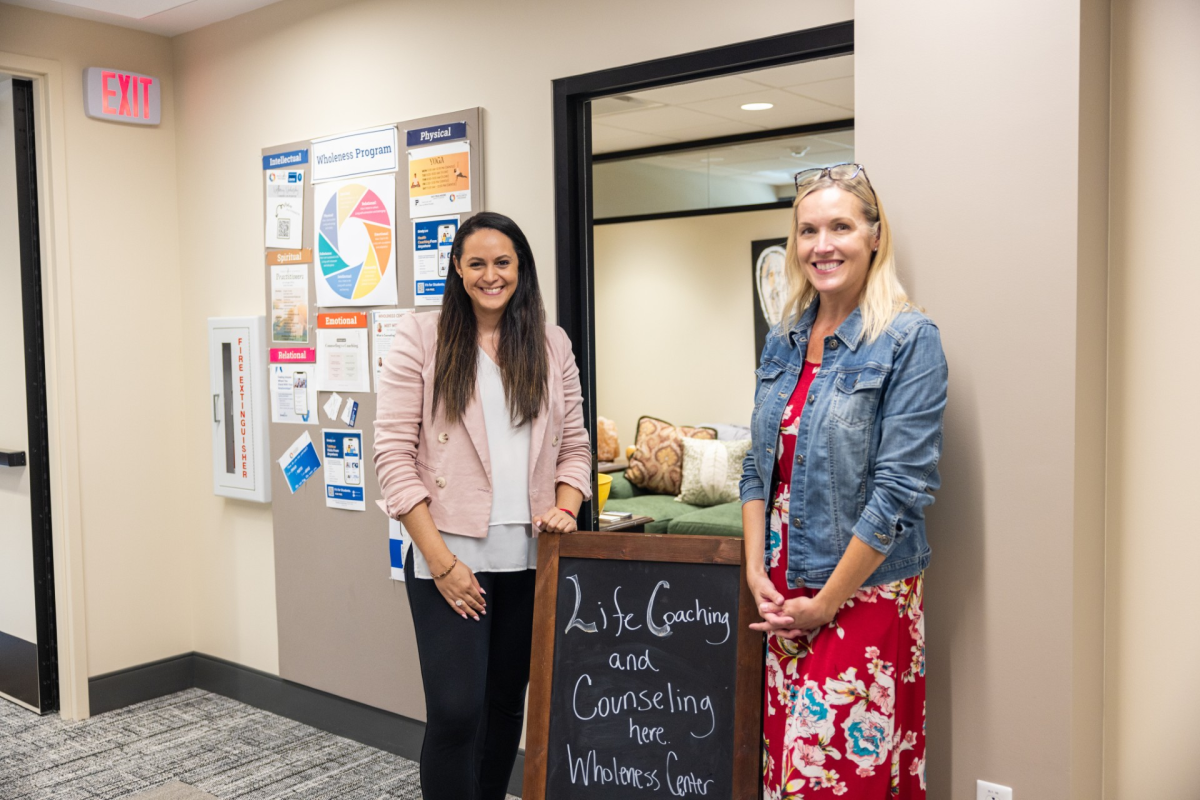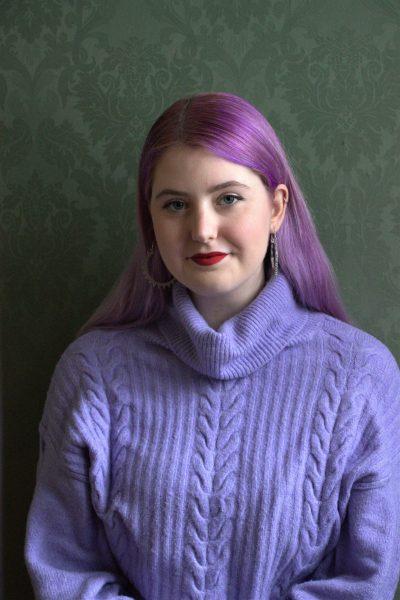This article was originally published in the December 9, 2021, print issue of The Pilot.
To many Principians, the word Piasa invokes an image of a worn-in but cozy college pub filled with good memories of friends, food, and laughter. To others, the word refers to the mural on the bluffs of Alton which depicts the mythical Native American Thunderbird. However, that’s not always what it depicted, and that’s not always what it was called. When the colonists came to the Mississippi, they wrote about a mural on the bluffs of the river. It was not a mural of the Thunderbird, but rather a mural of the Mishipeshu, also known as the Water Panther.
Dr. Andrew Martin of the Art History department has studied at length the Indegenous peoples and history of the Mississippi. Martin is currently on sabbatical, but normally teaches a Native American Cultures class which teaches students to appreciate and understand Native American cultures through a sociological and historical lens. He also teaches an archaeology course which for several years has been excavating a Native American site along the bluffs.
Junior Grace Flowers, a studio art major who took Martin’s Introduction to Archaeology class, recalled a myth which Martin told about the Mishipeshu. Long ago, two hunters were trekking back to their village. They were tired, and hungry from a long day of unsuccessful hunting, so when they stumbled across a nest full of snake eggs, the men devoured them. As they approached the great river, the Mishipeshu slithered out, and devoured the men. After that, the hunters’ village knew that if they wanted to fish in the Mississippi, or cross it by boat, they had to abide by the Mishipeshu’s rules of respecting the land and water. The moral of the story seems to be that to abuse nature, is to forfeit one’s right to nature. The Mishipeshu was a symbol of the necessity of respecting the land on which we live — a lesson particularly timely.

The land which Principia College stands on has a history which far predates Western colonization. Before colonists set foot on the Americas, the Native people of this land had beautiful, lively, and thriving societies all along the Mississippi river, according to the Cahokia Mounds Historic Society. Less than an hour downriver from campus are the Cahokia Mounds, a historic Native site that is utterly unique in North America. Cahokia was once a bustling Native city on the banks of the Mississippi. In the late medieval era, Cahokia had a larger population than London did at that time. Monks Mound, also known as Mound 38, the central earthen pyramid of Cahokia, is the largest pyramid north of Central America, with a base slightly larger than the great pyramid of Giza.
Students who have taken history or archaeology courses at Principia have likely taken a field trip to Cahokia and wondered why they didn’t know about it previously. Across America, Native history has been suppressed for centuries. However there is a growing movement of recognition, and Principia can be part of that movement according to one Principia professor.
Assistant Professor Dane Carlson of the Art & Art History department is part of the growing movement of recognizing Native land and history. Carlson starts the semester in each of his classes with an acknowledgement of the land we are on, how we got here, and the effects of that history on the Indigenous peoples of the Americas. Regarding the purpose of these semiannual acknowledgements, Carlson said “Land acknowledgements can be a really hollow thing, and so I think the hope and desire is that land acknowledgement becomes a platform for action. It’s not intended to just be a footnote, or something to think of in passing, but something that should hopefully structure entire modes of thought.”
Carlson is clear that this isn’t something that he came up with, although he doesn’t know of other professors at Principia doing land acknowledgements in class. Carlson noted that he has not spoken to Dr. Martin on the subject.
“A lot of people have trod this ground before me, this is not something I came up with,” said Carlson. “I don’t want to try and take credit for anything. There are mostly Indigenous thinkers and actors across North America and the world who have been arguing against colonial institutions, ontology, and epistemology for decades and centuries.”
One article ‘Decolonization is Not a Metaphor’ by Eve Tuck and K. Wayne Yang, is foundational in establishing that a curriculum can’t just be decolonized, explained Carlson. “You have to give land back,” he said.
Carlson believes that land acknowledgements aren’t enough, and that Principia needs to be part of the reparations movement of giving land back, and supporting those who still suffer from this legacy of colonization. He thinks that free tuition, room, and board should be implemented for Indeginous students.
“We’re living on top of other people’s heritage,” said Sophomore Christopher Ajuoga. “As Principia, we owe it to them [Native Americans] that they’re remembered and they’re respected. The first step in having Indegenous people feel seen, heard, and respected, is acknowledging their existence and presence. Members of the Principia family should be made aware that the land they tread doesn’t belong to us,” he said.
“I’m disappointed that our pub is named the Piasa Pub but the knowledge of what that word means isn’t being shared or recognized in our community,” said Sophomore Gloria Flowers.
This sentiment was echoed by other students. Freshman Tobin Blair suggests Principia reach out to local Indegenous tribes to get their thoughts on the name of the pub. He brought up the Spokane Washington baseball team, the Spokane Indians, and how the team reached out to and got support from the Spokane Tribe on whether or not their team name needed to be changed. The team was advised by tribe elders to keep their name, and try to spread awareness and education on the real history and lives of Native Amerians.
The Spokane Indians (the team) now have the name Sp’q’n’i’ — Spokane in the native language of the Spokane Tribe — on their uniforms.
“I don’t think it should be up to Principia or the Principia community to decide whether or not it’s okay to have this be the name of our pub,” said Blair, pointing to the story about the Spokane Indians and the Spokane Tribe. “The Indegenous tribes to whom the history of the Piasa, and the word Piasa, belong should make that decision.”
Some in the Principia community have already called for recognition, respect, and reparations regarding the Indigenous story of this land and its peoples. “You can’t cherry pick your relationship with history,” said Carlson.





